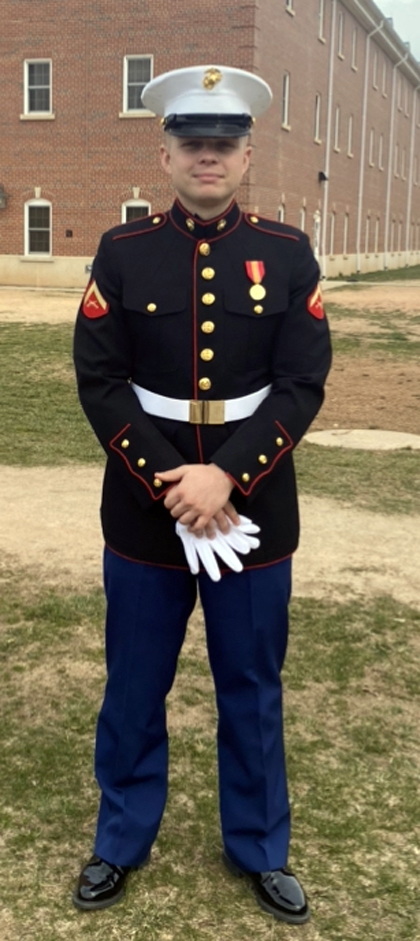
Quantico, Virginia. It brings to mind NCIS episodes. To get there, drive south some 35+ miles from Washington DC, to Triangle, VA, and turn east. MCB (Marine Corps Base) Quantico covers nearly 55,148 acres (86.69 sq. mi.) and is situated in southern Prince William and northern Stafford Counties. Bordered on the east by the Potomac River and on the north by Quantico Creek, it is nestled in a densely wooded wilderness.
The name Quantico is derived from a Native American term – by the large stream. Early settlements and plantations found the area conducive to tobacco farming, and Prince William County was organized in 1731. The first military presence in the area came during the American Revolutionary War when the Quantico Creek village became a main naval base for the Commonwealth of Virginia’s 72-vessel fleet.
It was not until 1917 that Marine Barracks, Quantico, was established on the land that comprises today’s base. Thousands of Marines were trained there during WWI; and, by 1920, the Marine Corps schools were founded. Subsequently, the first Marine Aircraft Wing was developed at Quantico, as well as the Corps’ first helicopter squadron – Marine Helicopter Squadron One – the first helicopter squadron to provide rapid transportation for the presidents of the United States: “Marine One.”
The U.S. Marine Corps’ Combat Development Command is based in Quantico, making up most of the community of over 12,000 military and civilian personnel and families. It is the home of the Marine Corps Officer Candidates School, the Marine Corps Research Center, the FBI Academy, and the training facility for the DEA.
In addition, training for U.S. Marine Security Guards (MSG), also known as Marine Corps Embassy Guard, takes place at Quantico. Detachments of the Marine Corps Embassy Security Group, a battalion-sized organization of USMC, provide security at American Embassies, American Consulates and other official United Government offices. The primary mission of the MSG is to provide the protection of classified information and equipment vital to the national security of the United States at American diplomatic posts.

In addition, MSGs provide security for visiting American dignitaries, frequently assist in supervising the host country’s security forces, provide protection for U.S. citizens and U.S. Government property located within designated U.S. premises, and provide interior security of a diplomatic post’s buildings. MSGs carry a certain level of diplomatic immunity in the performance of their official duties.
Marine Security Guard duty is one of a few special duty assignments available to qualified Marines. “It can be dangerous, and it is a crucial aspect of the Marine Corps’ mission to train a cadre of guards to cover 181 embassies and consulates worldwide.” (Wikipedia) In response to the 2012 Benghazi attack, Congress ordered a near doubling of Marine Security Guards.
A Marine must meet stringent standards before being considered for the MSG program. Once accepted, he must successfully complete eight weeks of rigorous training and testing before completing the program, graduating, and being assigned to a Foreign Service post. One Marine from Medina County has done just that. Lance Corporal Heath Runnels, son of Vance Runnels and LeeAnn Runnels, graduated as a Marine Embassy Guard on March 6, 2020.
It was a memorable experience to have been among the family members attending the ceremony. Before it began, visitors gathered in the auditorium where officials explained the proceedings and then dismissed us to congregate outside and watch the formation of the graduates. Replete in their formal, full blue dress uniforms, the Marines began marching from a distance toward the Warner Center for Advanced Military Studies auditorium in Quantico. Parents and family members watched in awe and as the group of some 140 Marines came to a stop and stood in still formation, never flinching or smiling as family members photographed and preened with pride.
Shortly, each line of Marines filed into the auditorium, and parents, friends, and family members went back to their seats. A speaker of some importance gave a very informative and enlightening talk about the role these Marines would have and the importance of their posts. Then, as each graduate’s name was called, he or she walked across the stage, shook the hands of several dignitaries – including their training sergeants – and the location of the post to which each would be deployed was stated. A huge map was depicted on the stage which pointed to the location of each of 142 posts as it was named.
Our Marine, Heath Runnels, will be deployed to a post in Europe, where he will remain for one year before being assigned to his next post. Meanwhile, family members are already discussing a “road” trip!